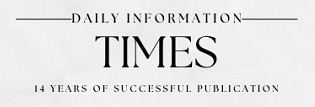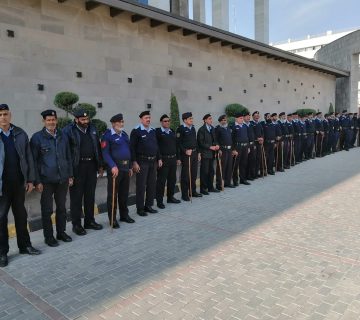ISLAMABAD, May 09 :Pakistan on Monday sought the support of the International Monetary Fund (IMF) board to break the deadlock over revival of the $6.5 billion loan programme as the delay is costing dearly in the shape of economic and reputational loss to the government.
Finance Minister Ishaq Dar held a virtual meeting with IMF Executive Director Bahador Bijani. Dar sought his support to persuade the IMF management to sign a staff-level agreement with Pakistan.
Bahador inquired about Pakistan’s intentions to enter into a new IMF programme, responding to which the finance minister said that he was open to discuss it, according to the sources.
They said that Dar was of the view that it was the responsibility and the obligation of the IMF to support Pakistan at this point in time with urgent signing of the agreement, followed by the board’s meeting.
Pakistan has publicly been blaming the IMF for the delay while claiming that it has met all prior conditions.
Bahador, an Iranian citizen, represents Pakistan, Algeria, Ghana, Iran, Libya, Morocco and Tunisia on the IMF board.
Sources said that Dar requested Bahador to play his role to break the gridlock with the management and staff of the IMF.
The meeting with the IMF executive director was held four days after IMF Mission Chief Nathan Porter issued a statement and negated Islamabad’s claim that it had met all prior conditions for ninth review of the Extended Fund Facility.
Porter said that the deal could only be reached once the necessary financing was in place.
The meeting with the board member also came almost a month after Dar virtually held discussions with IMF Deputy Managing Director Antoinette Monsio Sayeh and requested her to sign the deal.
For the past four months, Pakistan has remained unable to meet some of the critical conditions set by the IMF staff for reaching a deal, although it had met the conditions related to implementation of a mini-budget, increase in electricity, gas and petrol prices and leaving the exchange rate with market forces.
However, the government has not met the most crucial condition of arranging $6 billion in additional loans aimed at bridging the gap.
Sources said that Dar told the executive director that Pakistan had met all the prior actions including external financing commitments of $3 billion.
Saudi Arabia has promised to give $2 billion while the United Arab Emirates has committed $1 billion in fresh loans.
According to the sources, the finance minister informed the executive director that the remaining $3 billion can only be arranged once the IMF announces the staff-level agreement and the board approves the ninth review along with the $1.2 billion tranche.
Pakistan had informed the IMF that it would comfortably arrange the remaining $3 billion from the World Bank, the Asian Infrastructure Investment Bank (AIIB), European and Gulf-based commercial banks and out of Geneva pledges.
However, the government could not arrange those funds. The World Bank is not ready to approve the budget support loans until the IMF reaches a deal and Pakistan also meets conditions related to renegotiation of energy deals with China.
After assuming office in September last year, the finance minister was upbeat about bringing down the rupee-dollar parity to Rs180 to a dollar, reach a win-win deal with the IMF and bringing the spiraling inflation under control.
However, none of these objectives have so far been achieved and instead economic activities have come to a grinding halt, inflation is at a six-decade high of 36.4% and the rupee-dollar parity has jumped to Rs290 to a dollar in the open market.
Sources said that one of the concerns of the multilateral institutions and foreign investment banks was the country’s economic viability post-IMF programme that is ending on June 30. In this background, Bahador asked about Pakistan’s future plans.
They added Dar stated that the country was open to discuss the issue.
Deepening political uncertainty has also played a role in getting foreign loans and reaching a deal with the IMF, as the world does not know in which direction Pakistan’s politics and the economy will move.
Dar reiterated in the meeting the commitment to completing the IMF programme.
Pakistan’s foreign exchange reserves have depleted to a critical level of $4.5 billion and the government has started completely choking imports to delay the looming default.
It increased the interest rate to 21% in the hope of containing inflation and attracting foreign inflows – the two objectives that it has failed to achieve.




No comment